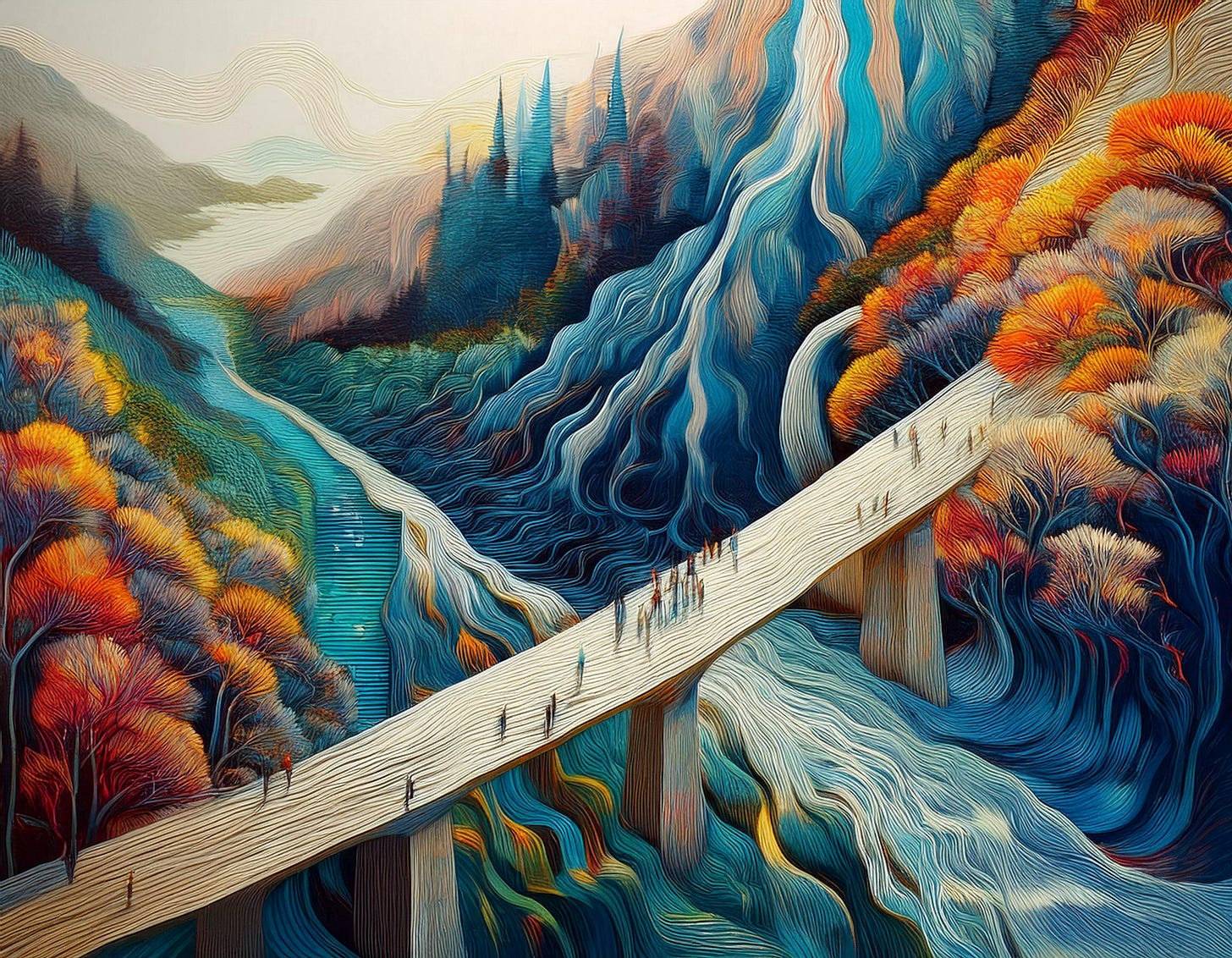Love & attention, where do we go next?
After the attention economy, will we be together or apart?
I feel somewhat out-of-step with a few aspects of modern business life these days. I don’t think I’m quite old enough for the generational circle to have turned so far that it should be a permanent state. Why can’t I feel the love?
How does it manifest?
In any number of practices that I just don’t see the sense in, but we keep doing, e.g.
Allowing private equity to run amok using leveraged buyouts.
Perpetuating the strange system of Medici-esque wealthy patronage that is how startups gain seed investment (and the hustle culture that creates)
Creating extraordinary amounts of content to no effect (so many business-related YouTube channels with hundreds of videos and tiny view/subscriber numbers)
Utilising technology solely to democratise and compress creativity, rather than making it better (sending us into a spiral of copying existing IP)
Ignoring empathy in all we do. A culture of “me”, “more”, and the zero-sum mindsets this engenders.
We have an inequality problem in the world, I’m not sure many would dispute that unless they have been subsumed by the zero-sum mindset and are entirely uncaring of others. Plenty of very wealthy people are calling for more tax to be levied upon them.
I find myself concerned about a different kind of inequality, an informational kind. 30 years into the internet being a part of our lives, I sense a gap between those who are cognitively drowning in information and those who have learned how to swim through it, while still taking the gulps of air they need.
I am becoming more cynical of those who hold the levers of this power. Rather than raise all human boats to a state of enlightment, the lack of correction to polarisation and populism makes me wonder if some kind of “informational eugenics” is at work. I still hear some use the phrase “sheeple” with glee, as they profit from mass dopamine addicition in social media users. Visions of the ‘The Matrix’ start to seem a little more possible.
Attention becomes immersion
I’ve seen a few things of late to reassure me I am not alone in questioning this. I’m not a great consumer of libertarian podcasts, but I stumbled on Rory Stewart talking about “living in a world of fairytales” on a recent episode of Triggernometry. I think it’s healthy when we talk across the divide like this, rather than in echo chambers.
I would suggest the point he makes about our current desire to avoid hard choices, avoid difficult debates, is rooted in our cognitive overwhelm. There is too much information, it comes at us, and changes, too fast. Hence journalism has become rather sloppy these days as it seeks to work in real-time without consideration and curation.
And yet our real world experience does not improve. We’re less wealthy, we’re less happy, we’re less meaningfully connected. Because we are being served a diet of distraction. Don’t talk to your friends and family, just watch a few reaction videos, they’ll tell you what opinion to form.
Business has become infected with this same thinking, especially marketing. Just do more, faster. Don’t win hearts and minds, just overwhelm them, until they can think of nothing but you.
I think we are getting close to the point where the portion of humanity who can, wake up to this. The rest have already been drowned. The schism of social media into places to be social and places to consume media is becoming more apparent.
In a recent keynote speech on AI, Yuval Noah Harari said,
“The last 10 years were the battle for attention. The next 10 years are the battle for intimacy”.
I agree with the line he is drawing. I can see how technology is shifting to prepare for this. VR headsets and metaverse environments are not tools for attention, they are tools of full intimate immersion. Even if the digital world they create is benign, they cannot fail to separate us from the real world if we let them.
It seems rather unlikely that digital natives, who already spend huge proportions of their time engaged in 2D screens, will acquire a sudden balance to their existence once given fully-immersive digital environments to exist in.
The fork in the road of attention
If digital immersion is one path we can go down, what is the alternative?
My hope is that it is a reconnection of the digital and physical worlds. Augmented reality, allowing us room for imagination and conjecture instead of full-immersion virtual reality distraction.
My fear for generative AI is that its enabling platforms are not being designed for this purpose. I wrote about that in a separate article here.
Intelligence compression has many uses for research, analysis and implementation. It can do good things for humanity. I do not believe in the value of compression for feelings, empathy and emotion. That is manipulation, not persuasion.
“Persuasion advances the position of all involved. It is a prosocial endeavour that guides the receiver of a message in accepting truth. In contrast, a manipulative appeal is one that if adopted will negatively impact another.”
Herein are those problems of inequality and the zero-sum mindset I mentioned earlier. If we move from allowing ourselves to be hustled by the commercial world for attention, into being hustled for intimacy, we will find ourselves with a heartache that goes way beyond our current set of cognitive and mental health challenges.
As The Supremes (or Phil Collins, depending on your generation) once sang. “You can’t hurry love. You’ll just have to wait.”





